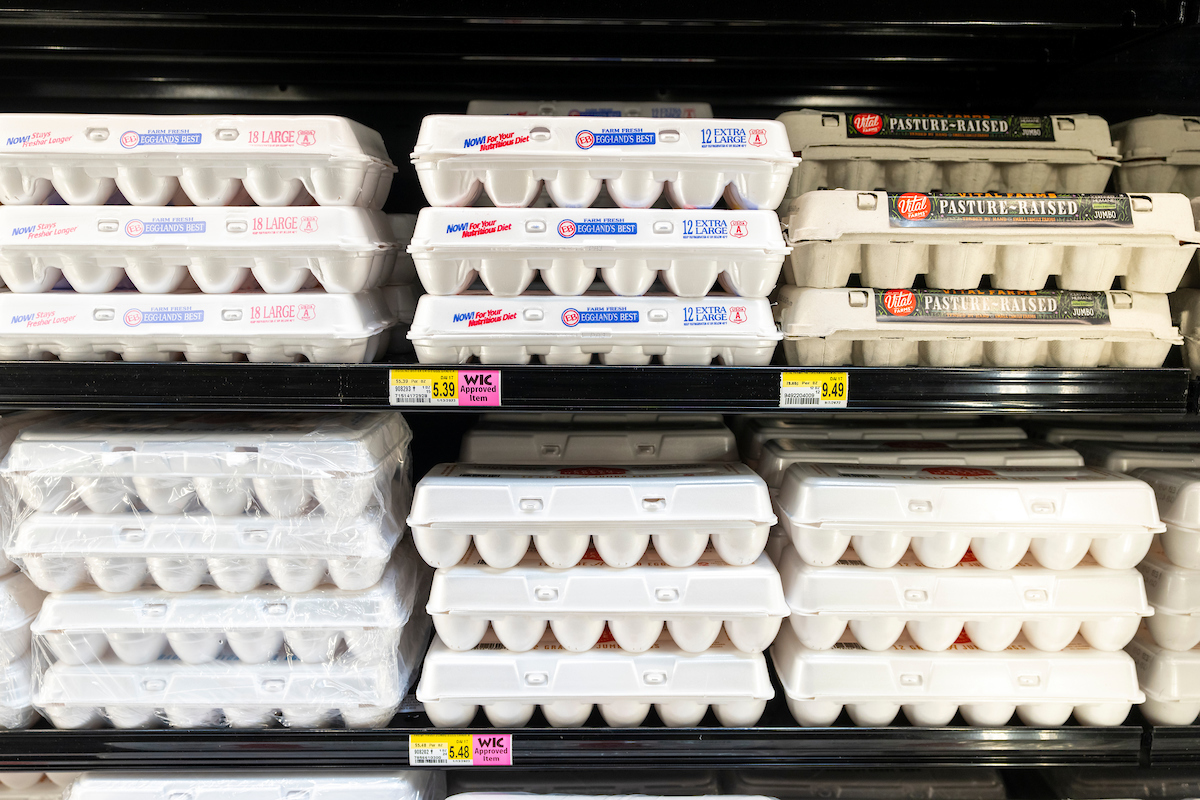Egg prices increase ahead of Easter holiday

Egg prices are on the rise as Easter approaches, according to a Texas A&M AgriLife Extension Service expert, but they are lower than what consumers may have paid at the grocery store earlier in the year.
Consumers—and the Easter bunny—may have noticed the price of eggs increasing recently but that has mostly to do with demand, said David Anderson, Ph.D., AgriLife Extension economist, Bryan-College Station. Anderson said he expects that trend to continue leading up to the Easter holiday.
“We’re actually producing more eggs than we did a year ago, but eggs have a seasonal pattern to them,” he said, “And with Easter being earlier than usual this year, we’re also seeing prices rise earlier than we typically would.”
Producers saw wholesale prices for cartons of shell eggs strengthening through this past week with the increasing demand.
Holidays tend to drive demand up as consumers purchase more eggs than usual for eating and baking. The Easter holiday demand also includes the purchase of eggs to dye and hide. In the photo above, Egg prices are up which is typical for the period prior to the Easter holiday, but still lower than what consumers paid in February. (Michael Miller/Texas A&M AgriLife.)
Egg prices rising but lower than last month
According to the U.S. Bureau of Labor, in February the Consumer Price Index for eggs increased 5.8%, which was 17% below the level of 2023, with an average price of $3 per dozen. This price was 47 cents per dozen higher than in January.
Egg prices peaked in February at $3.29 per dozen, according to some weekly U.S. Department of Agriculture– Agriculture Marketing Service retail grocery store data, Anderson said.
Last year around the Easter holiday, the USDA reported retail eggs nationally were $2.74 per dozen. Anderson said consumers can expect them to be around $2.99 per dozen this year.
Anderson expects the cost of a dozen eggs will decline around Texas after the holiday, which is typical, however stores may drop prices closer to Easter if demand isn’t as strong as expected.
“But I don’t think I’d wait until right before Easter to buy your eggs, just in case the demand is stronger than expected,” he said. “You probably don’t want to wait too long to get eggs, especially if you’re planning on using real ones for your Easter egg hunt.”
Ongoing effect of avian influenza
Avian influenza, which has devastated commercial and backyard flocks in the U.S. since the outbreak began in January 2022, has been on the decline so far this year. Only one flock in the state has been infected to date, and that was a backyard flock in the Texas Panhandle, said Greg Archer, Ph.D., AgriLife Extension poultry specialist and associate professor in the Texas A&M Department of Poultry Science, Bryan-College Station.
“Since December there have been around 14 million birds lost to avian flu, with the majority being in the upper Midwest,” said Archer. He said while that number may be alarming, the majority—around 11 million—were impacted in December and last month only about 300,000 birds were lost.
Since the start of the outbreak in 2022, over 82 million birds have been affected. As producers have been able to replace the egg-laying hens lost, consumers have seen that reflected in lower egg prices.
“Knock on wood we’ll continue to see those fatality numbers drop,” he said. “Since it hasn’t been as bad this year, I wouldn’t expect egg prices to be as affected by that as much as in past years.”



